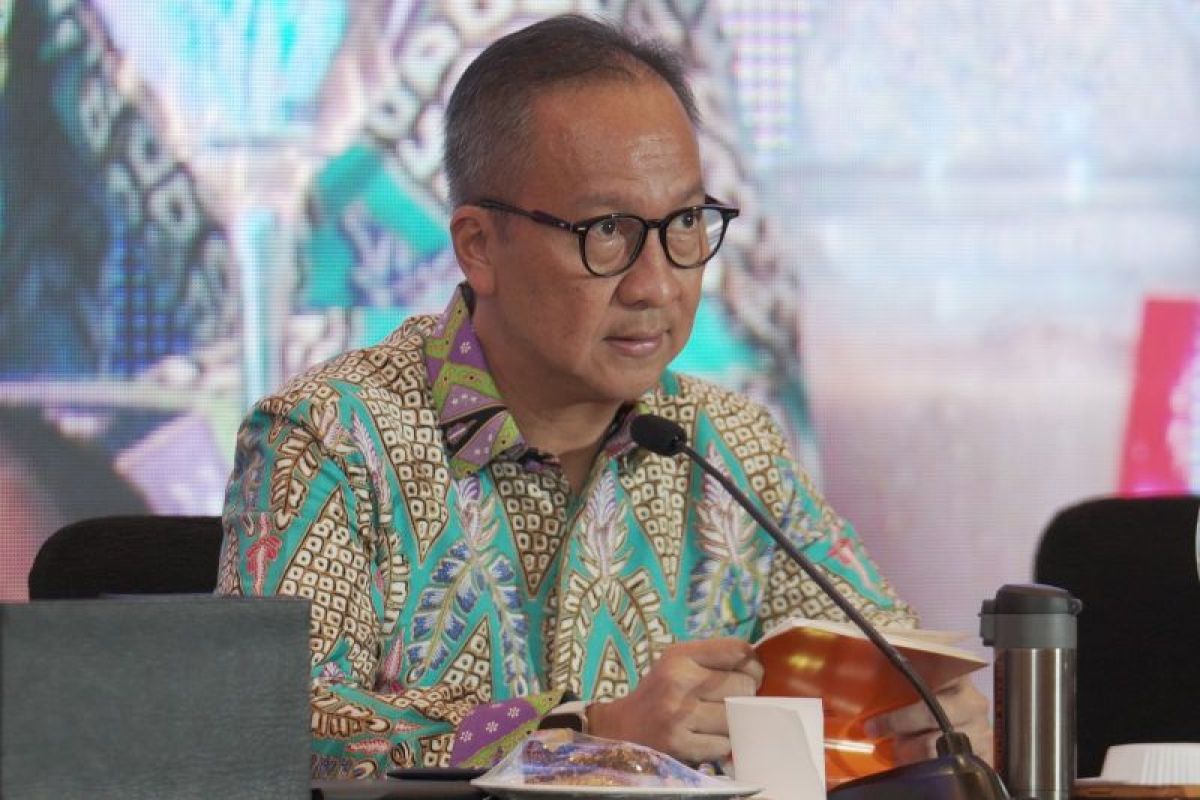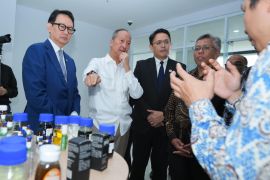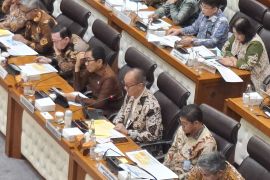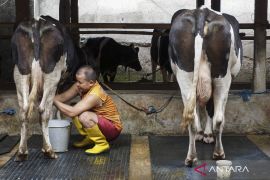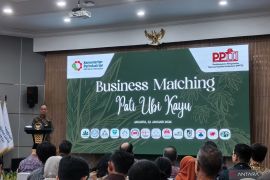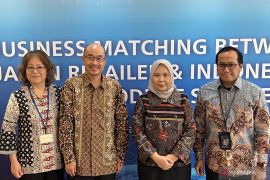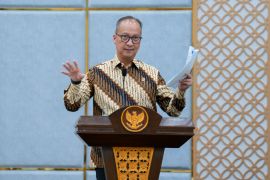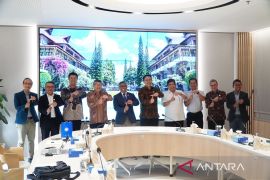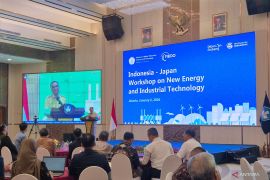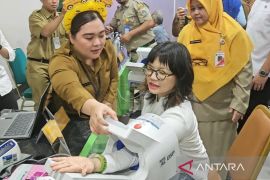Report of GHG (greenhouse gas) emissions through SIINas (the ministry's information system) is also needed, and (there is a need to) prepare product category rules.Jakarta (ANTARA) - Industry Minister Agus Gumiwang Kartasasmita has said that, with the addition of the transportation equipment (automotive) subsector to the list, nine industrial subsectors are currently being prioritized in decarbonization acceleration efforts.
Earlier, only eight subsectors were being accorded priority — cement, steel, pulp and paper, textiles, ceramics, fertilizer, petrochemicals, and food and beverages.
"These sectors are what are called energy-hungry industries. And, we added one more sector, namely the transportation equipment industry," he said in a statement issued by his ministry on Thursday.
The nine subsectors were determined at the Ministry of Industry's working meeting on the preparation of the industrial sector decarbonization action plan toward the 2050 net zero emission (NZE) target, which was held here on Wednesday (October 11, 2023).
Kartasasmita emphasized that his ministry is ready to issue a ministerial regulation to support the decarbonization process. The regulation will regulate the action plan and the road map, among other things.
"Currently, we have 35 standards of the green industry, so we are waiting for the industries to be ready to be able to mitigate it," he said.
He added that to achieve the target of decarbonization acceleration in the industrial sector, the strategic steps that need to be made include readying industrial human resources for the management of greenhouse gases.
Furthermore, a mechanism for providing incentives is considered necessary, for example, in relation to the restructuring of technology, equipment, and machinery, including the simplification of business licensing.
"Report of GHG (greenhouse gas) emissions through SIINas (the ministry's information system) is also needed, and (there is a need to) prepare product category rules," he added.
The minister said he is optimistic that the NZE target for the industrial sector can be achieved by 2050, 10 years earlier than the national NZE target 2060.
This optimism is based on the levels of GHG in Indonesia's industrial sector from 2015 to 2022, which were only around 8–20 percent of the total national GHG.
Meanwhile, in terms of the sources of industrial sector emissions in 2022, emissions from the energy use category contributed 64 percent, emissions from industrial waste contributed 24 percent, and emissions from production process and product use contributed 12 percent.
Related news: Indonesia, UNDP to draft tourism decarbonization road map
Related news: Indonesia presses for global community real action for decarbonization
Related news: Indonesia boosts decarbonization to realize NZE 2060 target
Translator: Ade Irma, Raka Adji
Editor: Azis Kurmala
Copyright © ANTARA 2023
